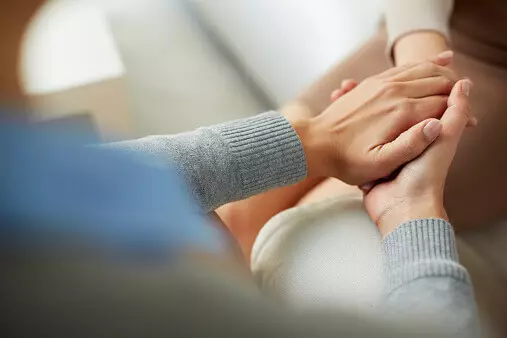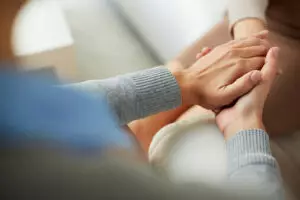Because of the high overlapping rates of occurrence between mental health disorders and addiction, dual diagnosis is an important aspect of recovery. While all facilities differ somewhat, the best dual diagnosis treatment centers all have some key things in common. If you or someone you know is suffering from co-occurring disorders, it’s time to find a top dual diagnosis treatment center that can help!
The Best Dual Diagnosis Treatment Centers Focus on Individual Behavioral Therapies
According to the Substance Abuse and Mental Health Services Administration, there are 7.9 million Americans that have both a mental health illness and a substance abuse disorder. These individuals require dual diagnosis treatment, and the basis of that treatment should be evidence-based behavioral therapy.
There are two primary forms of individual behavioral therapy used in the best dual diagnosis treatment centers: cognitive behavioral therapy (CBT) and dialectical behavioral therapy (DBT). Cognitive behavioral therapy brings attention to negative thought patterns and helps individuals replace those patterns with positive, healthy cognitive processes. Dialectical behavioral therapy aims to improve self-esteem and lessen strong and overwhelming emotions that lead to harmful behavior.
Effectively Treating Co-Occuring Disorders
In many cases, people who are suffering from the effects of substance use disorders and mental health disorders become overwhelmed by the impact these challenges have on their lives. Sometimes, people who are dealing with these co-occurring disorders may seek professional treatment for one of the problems without realizing that the other disorder also needs attention. In other cases, professional treatment centers may overlook the fact that their patients are struggling with co-occurring disorders, focusing treatment on only the addiction.
It can be dangerous to treat only one disorder when a person is dealing with multiple challenges. For some people, one disorder is actually one of the contributing factors of another disorder in their lives. For example, many people who suffer from alcoholism also begin to suffer from clinical depression. Some individuals struggle with drug addictions and, as a result, develop a mental health disorder.
So, treatment should focus on helping the whole individual. It should be dedicated to helping people to overcome addiction as well as the harmful effects of their co-occurring disorder. If individuals don’t have personalized treatment that is centered around their emotional, physical, emotional, and mental health, it’s possible that they will eventually experience addiction relapse.
This happens due to the fact that, when treatment programs do not address the contributing factors of addiction, individuals may not learn how to work through those factors in a healthy way. As a result, they may resort back to their previous coping method — substance use. Thankfully, dual diagnosis treatment programs can help to treat addiction and any co-occurring mental health disorders. With the help of medical professionals who understand how to treat individuals who are suffering from substance abuse and other disorders, people can gain the freedom and peace they need.
Not all addiction centers have psychiatrists or even professionals who have been trained in psychiatry on their staff. But, top-ranking dual diagnosis treatment centers place a lot of emphasis on hiring trained individuals. These medical professionals are able to conduct individual therapy sessions, lead group counseling sessions and identify any co-occurring mental health disorders that need to be addressed during recovery.
Dual Diagnosis: A Long-Term Care Option
Addiction treatment programs come in all shapes and sizes; some are lengthier while others are very short in duration. Dual diagnosis programs, however, tend to be more successful if they are long-term. Centers that focus on dual diagnosis understand that there is no quick fix when it comes to treating both substance abuse and mental illness. Longer programs often have higher rates of success, translating to better health and happiness for patients.
How Dual Diagnosis Treatment Centers Work
When a person who has co-occurring disorders begins the treatment at a top-performing dual diagnosis treatment center will first receive an assessment. This allows the professional staff at the facility to become informed about the individual’s challenges and needs throughout the recovery process. It also allows patients to be more aware of what they may not have known about their addiction and mental illness.
After the assessment, individuals can begin treatment by going through a detoxification process. Detoxification, usually called “detox”, is a medically-assisted process that helps individuals to safely end drug and alcohol use. During this period, patients may experience withdrawal symptoms that would otherwise be very difficult to manage. Thankfully, those in treatment can rest assured, knowing that they have access to medical help whenever it’s needed.
Next, individuals take part in a treatment program such as inpatient (residential) treatment, a partial hospitalization program (PHP), intensive outpatient program (IOP), or outpatient program. In many cases, individuals go through each of these levels of care as they recover from substance abuse and learn to work through the symptoms of their mental illness or other co-occurring disorders.
Group and Family Therapy Options
The very best treatment centers offering dual diagnosis programs provide a range of therapy options for patients. Notably, they offer therapies that showcase a support system.
Group therapy can be a wonderful way to share experiences. It also allows patients to learn from one another while honing their social skills. Family therapy is another helpful tool that can accomplish all of the following objectives:
- Differentiating between enabling and helping
- Utilizing the existing support system of family
- Rebuilding connections and relationships between family members
- Educating family members about mental illness and the illness of addiction
Aftercare Options for Relapse Prevention
A vital component of effective dual diagnosis treatment is the acknowledgment that the work isn’t over when rehab ends. To successfully prevent relapse, patients and treatment centers need to work together to create aftercare plans.
Aftercare could include regular meetings in an outpatient program to maintain sobriety for months or even years to come, or life skills training so that patients can learn vital skills on their own. Aftercare might also include learning about available group meetings that can offer accountability for the future.
Finding the best dual diagnosis treatment centers don’t have to be challenging if you know where to look. Start the search at 1st Step Behavioral Health in South Florida. Call (855) 425-4846 and let us prepare you for your journey to recovery.
References:
Jump to a Section
Call (855) 425-4846

